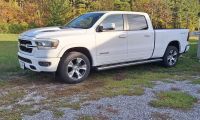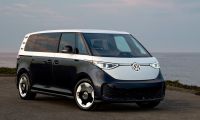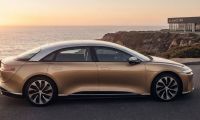Have you ever wondered how Tesla Motors manages to build electric vehicles, EV that so far have had no serious battery pack flaws, whereas others have been plagued with problems? Worse yet, how come Tesla Motors with their generic, commoditized laptop lithium batteries can achieve greater range when carmakers with highly developed and tweaked automotive lithium batteries have been plagued with problems? The answer is simple, take on battery security yourself and let battery makers do what they do best, mass-produce laptop batteries.
AC Propulsion A the Heart of The Design Philosophy. It’s a chicken and the egg problem but if we are to go back in EV history, say 2005 - 2006, we find the grandfather of all electric vehicles, AC Propulsion toying around with a blistering fast electric rocket, the t-zero. This catches the attention of Martin Eberhard and Elon Musk who reach out to AC Propulsion asking them to manufacture the EV. When they are told no, they decide to make one on their own. Thus the Roadster was born, but it was borne out of the same t-zero philosophy, off the shelf laptop batteries. Via Rob Sweeny on GreenTechMedia.
Using regular, industry standard laptop batteries instead of specifically designed automotive batteries, Tesla Motors manages to get a modified Lotus frame to achieve around 240 miles. Other makers at the time get on an average 60 with heavily modified “automotive” lithium-ion batteries. Why? Tesla Motor’s philosophy is that batteries will go wrong and statistically, they are 100% right. Problems will happen and instead of asking the battery industry to remedy this fact, it is far easier to build a thermal management system that will keep problems in check and add a crash proof battery pack around said dodgy batteries. If at first this philosophy sounds odd, just look at the numbers. How many EVs have had problems with automotive lithium batteries and how many Tesla’s have had problems.
Thermal Runaway Propagation. Technically the problem with laptop lithium-ion cells is that one can start to overheat and set in motion a chain reaction. Tesla’s philosophy was that failure is imminent, while OEMs felt that with their stringent demand from lithium manufacturers would remedy this. History speaks for itself, Tesla battery packs have faired better than any other OEM, making things worse by using a commoditized laptop battery.
It’s All About Rigorous Testing. For Tesla, everything relies on rigorous testing of its form-factor cell. the ‘18650’ – 18 mm in diameter and 65 mm long. At this point, you might say others do as well but Tesla assumes laptop batteries will go wrong, whereas carmakers assume they have given the correct tolerance requirement for their lithium battery producers. Of course, Tesla EVs are more expensive than a mainstream EV but all things considered, it is affordable for a startup especially when it matches performance of cars that sell for more. Tesla took advantage of this by using the PC market that had already amortized such common laptop batteries. Oddly enough, cell per cell, a Tesla cell is cheaper than a carmaker’s cell.
Here is bigger than life Nobuhiro Tajima’s take on the Model S.
Lithium Battery Tolerance. The problem is that laptop batteries are not designed for long-life span and cold weathers. What Tesla did was to “create” a battery pack that could withstand such automobile abuse it wasn’t originally designed for. Tesla Motors designed a comprehensive battery management system in the form of pack balancing, monitoring, thermal control and, most importantly, fault tolerance. Tesla’s battery results are today better than what OEMs have, including the hybrid approach Fisker has used.
Which brings me to my last point, this year will not be about exotic battery discoveries, period. There might be interesting news here and there but the meat and potatoes will be about making battery management much more efficient. On this topic, keep an eye out for CODA that has also designed an incredible battery and thermal management system, which the company has intelligently spun out as an entire branch.
This is showing two radically philosophies in the EV world. Should car manufacturers push safety onto their component makers and avoid the inevitable, that batteries that will statistically have problems, or take it on themselves, as Tesla Motors did? The answer is obvious and so far, only Tesla Motors and CODA has done their homework right with battery packs that have much better than their more establish carmakers.











Comments
It is refreshing to read
Permalink
It is refreshing to read someone say that a huge Earth-shaking battery breakthrough isn't how EVs will move ahead. The truth of almost all technical progress is slow, methodical development. Tesla was very wise to make sure they controlled the battery technology. Everything else is is already available from multiple suppliers. Fisker is wishing they had taken that path. They lost control of their supply chain and they are done.
John, how shocking, did you
Permalink
In reply to It is refreshing to read by John Goreham
John, how shocking, did you ever doubt me? Yes, Fisker is in a tough spot but I predicted then they would become a consulting company, unless they can still manage to build the Atlantic, this time using the AC Propulsion/Tesla business model.
Don't forget price. Most of
Permalink
Don't forget price. Most of the cars offered by the "mainstream" makers are half the price.
It's always the same, pay for
Permalink
In reply to Don't forget price. Most of by Aaron Turpen
It's always the same, pay for it upfront or take your chances. Yes, you can buy less range for half the price, or twice for both. It's freedom of choice, that's what matters most.
Why not make your own
Permalink
In reply to It's always the same, pay for by Nicolas Zart
Why not make your own batteries...
If you have a commodity
Permalink
In reply to Why not make your own by Anonymous (not verified)
If you have a commodity battery already mass-produced, why develop your own version? Use what is available and make it work. The point of the article was top show the difference between mainstream manufacturers who put the security on the shoulders of battery makers, whereas Tesla assumed they would fail and took it onto themselves to build packs that would handle failure.
Designing your own batteries is very expensive and as we've seen with a few local makers, hasn't been a very profitable business.
Are you working on something?
Seems like Boeing needed to
Permalink
Seems like Boeing needed to change their battery management philosophy too.
Sounds like it. I'm not an
Permalink
In reply to Seems like Boeing needed to by Anonymous (not verified)
Sounds like it. I'm not an expert in the aeronautic field but I do know one thing, when company get caught up in the market share supremacy, they cut corners and make mistakes. We saw what it did to GM and Toyota, Boeing and Airbus have done the same. Business models really need to be rewritten more than ever. That's why I like how disruptive electric vehicles are, it throws away the old practices and challenges carmakers to think differently. At least, for now ;)